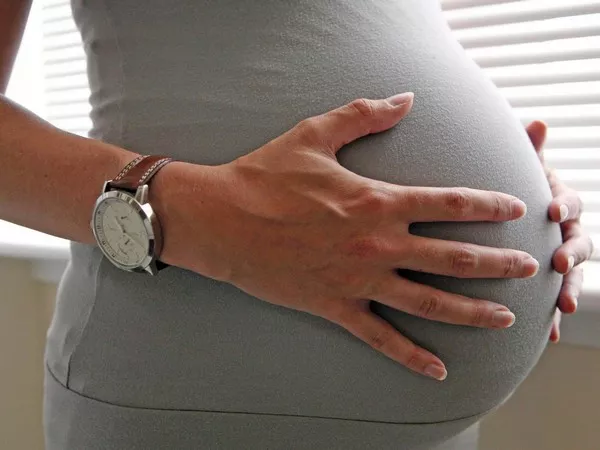Pregnant women in the Gaza Strip are enduring extreme hardships as Israeli airstrikes continue to devastate the region. The ongoing conflict has created an urgent and dire situation for expectant mothers, with limited access to healthcare and growing dangers.
One such woman is Niveen al-Barbari, who is due to give birth to her first child this month. The constant Israeli air attacks have left her in a state of fear and anxiety, complicating her pre-existing medical conditions, including gestational diabetes and high blood pressure. The violence has disrupted her regular visits to a specialist, leaving her with questions about how and where she will give birth.
The situation is dire for many of the 50,000 pregnant women in Gaza, according to the United Nations Population Fund (UNPF). The healthcare system in Gaza is under immense strain due to the longstanding siege imposed by Israel, leaving many pregnant women without access to essential check-ups and treatments. The UNPF has called for urgent healthcare and protection for these women.
The displacement of large segments of the population due to the recent bombardments has further exacerbated the problem. Changing residences means that many women have lost access to the health centers that were previously monitoring their conditions. This loss of continuity in healthcare is particularly challenging for pregnant women, who require ongoing care and follow-up throughout their pregnancies.
Displaced people in Gaza are currently seeking refuge in overcrowded UN-run schools and with relatives and friends. This situation has created a health and environmental crisis in these makeshift shelters, increasing the risk of poisoning due to unsanitary conditions.
For Suad Asraf, who is six months pregnant with her third child, the displacement from her home to a UN school in Khan Younis has taken a significant toll. She experiences extreme fatigue and lacks proper nutrition and care. The overcrowded and noisy conditions in the school make it difficult for her to get adequate rest. This situation has also forced her to drink saltwater, affecting her pregnancy.
The concerns are not limited to physical health; the emotional toll of living in fear and uncertainty has led to increased stress and anxiety among pregnant women. The ongoing bombings and their impact on children and infants add to the distress.
The destruction of Gaza’s main roads has made it difficult for pregnant women to reach functional hospitals for childbirth. What used to be a short car ride now takes hours, posing severe risks to the health of expectant mothers.
In addition to these challenges, Israel’s threats to target hospitals and calls for evacuation have created an impossible situation for medical staff. Pregnant women and their healthcare providers are stuck in a perilous predicament, with limited access to essential services.
The Palestinian Family Planning and Protection Association warns that more than 37,000 pregnant women in Gaza will be forced to give birth without electricity or medical supplies in the coming months. This situation places their lives in jeopardy, with the absence of emergency obstetric services increasing the risk of life-threatening complications.
The healthcare crisis in Gaza is a pressing concern, and urgent intervention is needed to ensure the safety and well-being of pregnant women in the region.


